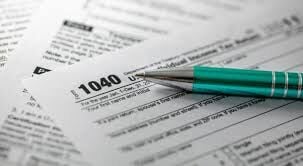Auburn University Professor Kimberly Key provides information on tax preparation, tax laws and the effect of COVID-19 stimulus checks. She serves as the PWC Professor of Accounting in Auburn University’s Harbert College of Business.
Question: How might tax preparation be different this year? Should we expect an influx of people using online services rather than the traditional brick-and-mortar methods?
Answer: Professional tax preparation businesses have had plenty of time to plan and prepare for a filing season in a COVID environment. Most preparers are ready to do their work and serve their clients in a variety of ways: in person with masks, drop off at an office or virtually. Taxpayers can call an office or check online for details for specific preparers. Several Auburn University accounting students do volunteer tax preparation with SaveFirst, an Alabama organization dedicated to providing free tax preparation to lower-income residents. Their filing season will be virtual only.
Question: Are there any changes to the tax code this year compared to last year? Should individuals expect any COVID-related income tax breaks?
Answer: 2020 tax rules are nearly identical to 2019, but a temporary change for 2020 and 2021 affects individuals with a spirit of helping others. Cash donations to qualifying charitable organizations are deductible even if the taxpayer/donor takes the standard deduction instead of itemizing deductions. The maximum 2020 deduction is $300. For 2021 donations, unmarried taxpayers can deduct up to $300 and married filing joint taxpayers can deduct up to $600. The IRS estimates that 87% of taxpayers take the standard deduction, so this tax rule potentially affects many people.
Question: Will COVID-19 stimulus funds be taxed?
Answer: The short answer is no. These funds are technically federal tax credits, and there is no mechanism to somehow turn around and make the funds taxable.
The state level is a little more interesting, with the short answer also no. Alabama is one of only a few states that allows a deduction for a taxpayer’s federal tax liability. Logically, a taxpayer whose federal tax liability is lower than it would have been because of a federal tax credit should have a lower corresponding state tax deduction. However, it is nearly impossible to get people to understand that logic. Therefore, the governor passed an executive order to ensure that the stimulus funds will not affect the state tax deduction. In early February, legislators introduced a bill to ensure that the order stands.
Question: With many people working out of their homes now due to COVID, can they use this situation to their tax advantage and write off home-related expenses, such as power and water or expenses like a desk and new computer equipment?
Answer: No for employees. These expenses were potentially deductible in the past but starting in 2018 that rule was eliminated. However, self-employed taxpayers continue to be able to deduct expenses for a qualifying home office. If a self-employed individual’s home-based work environment changed during 2020, it would be worth investigating the rules.
Question: Should people expect a refund to be less or more than in the past?
Answer: It depends. If a taxpayer’s situation is mostly the same for 2020 as it was for 2019, then a refund should be about the same. Any significant life events like marriage or the birth of a child or a change in income or expenses, such as a mortgage on a new home, can change a taxpayer’s taxable income and refund (or amount due to the IRS and state). Some individuals who did not receive any stimulus payments may find that they have lower taxable income in 2020 compared to 2019. In that case, they may be pleasantly surprised to benefit from the stimulus when filing their 2020 tax returns.
Question: With a new administration in Washington, should we expect a different tax code either this year or in the future, and if so, what could we expect?
Answer: We will have to wait and see. President Biden campaigned on a platform of raising taxes. Congress is obviously an important part of any tax law changes, so there will be a political process to navigate to make any changes. COVID-related issues will likely dominate the next few months, so it is hard to predict when taxes might come on the radar in Washington, D.C.


